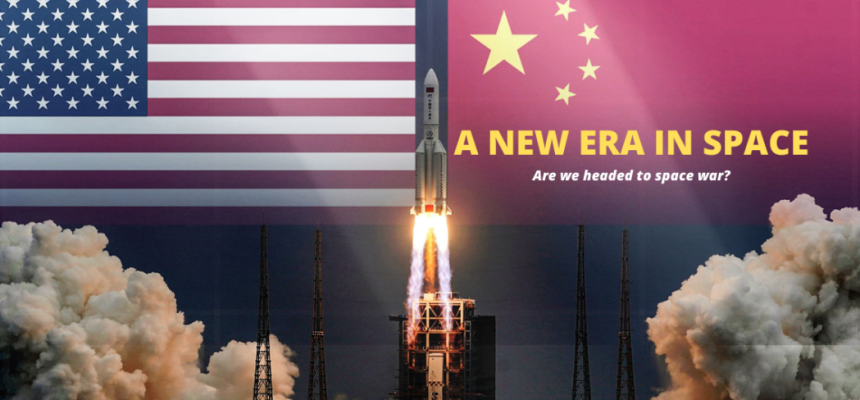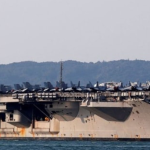The new year could be a turning point defining the space age. The competition between U.S and China is shifting gears from economic and military spheres to outer space.
Looking back, the Soviet Union launched the first space station in 1971, named Salyut 1. Being in orbit for just 170 days, led to the course of newer and better versions of space stations, from Skylab to Tiangong. Attributing to space exploration and providing an ever-changing outlook of human interaction outside the earth boundaries.
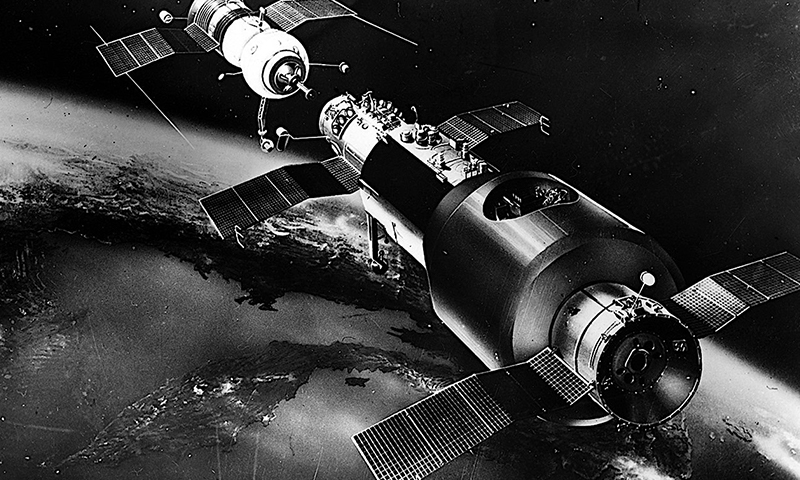
Contemporaneously, totaling the horizon of science studies and innovations space stations are not just limited to science innovations or scientific interest. Moreover, they are engaging in social world affairs may it be cooperation, social relations, or great power competition in global politics.
Space exploration started during the cold war period. The United States and the former Soviet Union witnessed fierce competition in the realms of space exploration. The Soviet Union was the first country to venture into space when it launched the first-ever artificial satellite in space called Sputnik on October 4, 1957. Later, the US gained the upper hand when the first human being landed on the lunar surface.
Read More: AUKUS: A Beginning of a Nuclearized Era
Since then, the US and Soviet Union began collaborating in space exploration and in 1975 the two countries launched the Apollo Soyuz test project, which singled the two nations’ intentions to work together in space. The cooperation led to the development of the International Space Station. In 1998 during Ronald Regan’s presidency, International Space Station has been in orbit, abetting international scientific collaboration and likewise comprehending how humans can live in outer space. Made up of sixteen pressurized modules, ISS is considered to be the most expensive human construction ever.
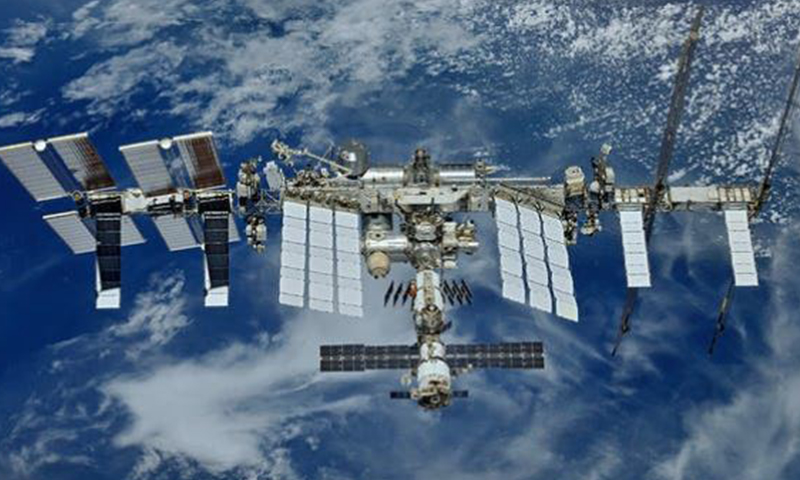
In the 1990s, China rolled out its space program. Becoming the new challenger to US hegemony in space, in the 21st century.
Competition for Dominance
Consequently, the US is now confronting a new threat to its dominance in space explorations. The threat is China. According to Purchasing Power Parity (PPP), China is the second-largest economy. Having the resources, China is a rising superpower. China has increased its overall government funding for space exploration.
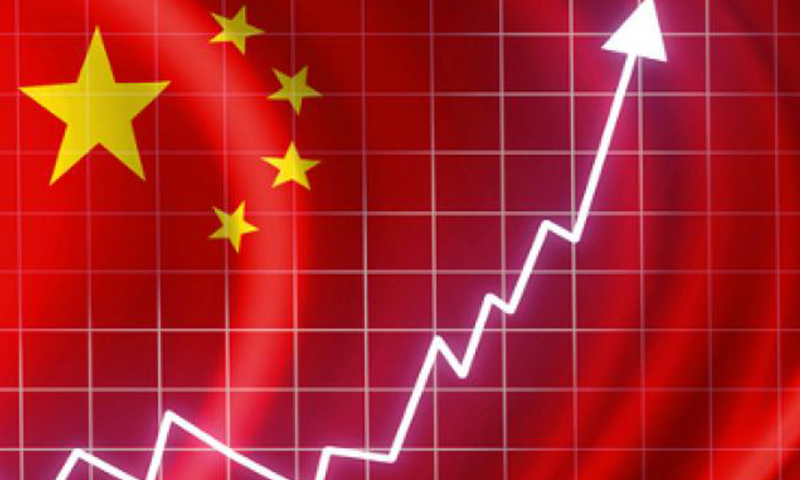
In 2020, China’s expenditure on space activities in space reached $8.9billion. This figure looks relatively low compared to the US $48 billion, regardless experts agree that it’s a significant improvement. China has ramped up its space exploration programs and research and may soon overtake the US in this field giving US fierce competition. China’s first astronaut in space landed in 2003. While China is developing its space program at a breakneck speed, the US is dependent more on Russia to sustain its presence in ISS. Recently, China made history by becoming the first country to land an uncrewed spacecraft on the moon’s far and most remote side.
Presently, NASA is in the midst of the struggle to fly astronauts to space via spaceship. China has launched more unmanned vehicles to space than any other country. China is only second to the US in terms of the number of spacecraft in the orbit.
The country currently operates several navigation satellites, missile detections, weather monitoring satellites, navigation and surveillance satellites. Despite being a late entrance to space, China has managed to achieve a lot. Enough to compete with the global hegemon the United States. Having a space station presented China with great opportunities to extend its dominance in space. China launched the core module in orbit of the Chinese Space Station (CSS) in 2019. Which is designed to provide astronauts with living accommodations and a central control station. The CSS is expected to be fully operational in 2022.
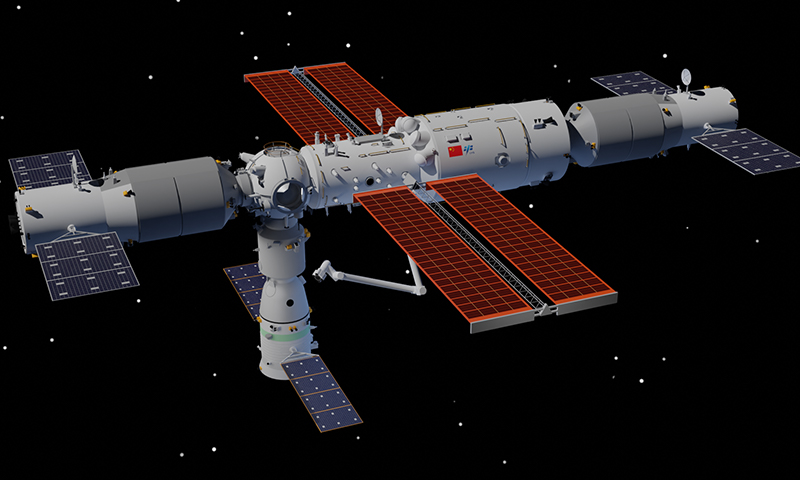
A Military Space?
The competition between US and China carries existential threats when it comes to space. The militarization of space will ensure Mutual Destruction since nuclear missiles can be launched through space, maximizing lethality and threatening the peace on Earth. This will also lead to uncontrolled proliferation causing space debris increasing the risk of life on earth. The more satellites the more debris in space.
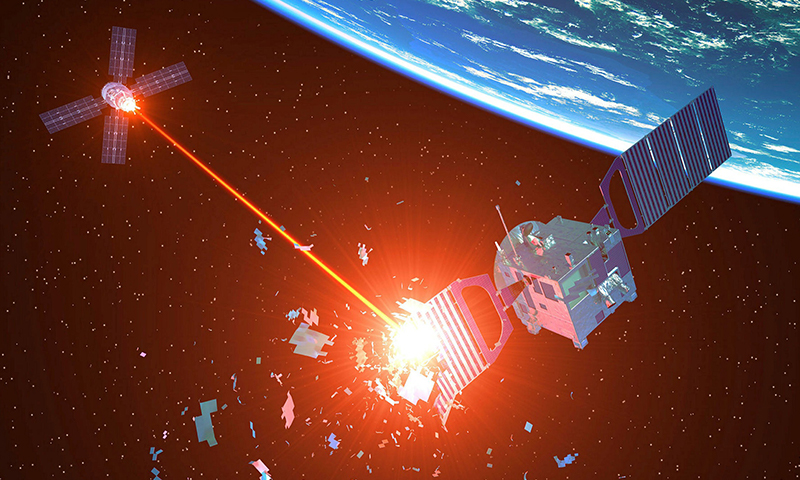
Hence, Arms control will remain an illusion.
Great Powers in Space
When it comes to US-China rivalry; the sky is not the limit. In their great power competition, after the economic, geopolitical, technological superiority, space has become yet another war ground. Since the fall of the Soviet Union’s space program, the US has enjoyed a period of uni-polarity not only on earth but also in space. In the 21st century, China’s fast-growing space capabilities and high-profile achievements have threatened US’s unparalleled supremacy in space.
Last year, the US-China rivalry entered a new phase in space when three of the Chinese astronauts arrived on its under-construction space station for a period of three months. In comparison to the only space station in the orbit ISS, a US-led collaboration with Japan, Russia, Canada, and Europe.
Read More: THE NEW ECONOMIC WORLD ORDER
China is ready to welcome foreign astronauts upon its space station completion. Likewise, China is making an alliance with Russia to build a joint research station on the moon’s south pole by 2035, an open door to international participation. On the other hand, the US is building its own international coalition on the basic principles of safe and responsible lunar explorations. Last year, NASA released the Artemis Accords, signed by 12 countries including the US and key allies such as Britain, Australia, Canada, Japan, and South Korea.
In the near future alliances in space will mirror the geopolitical lines on earth.
The Fear
Washington and Moscow extended their agreement on cooperation in space which justify the China exclusion policy. The US is ready to cooperate with Russia but not China why? The only reason that justifies is, how the US perceives the two states’ ambitions. The Russian space program has not been very successful in the past. However, China’s high-profile space program threatens the US that China might lead its way out in outer space. China’s space advances undermine the US senior role in cooperation as it has with Russia.
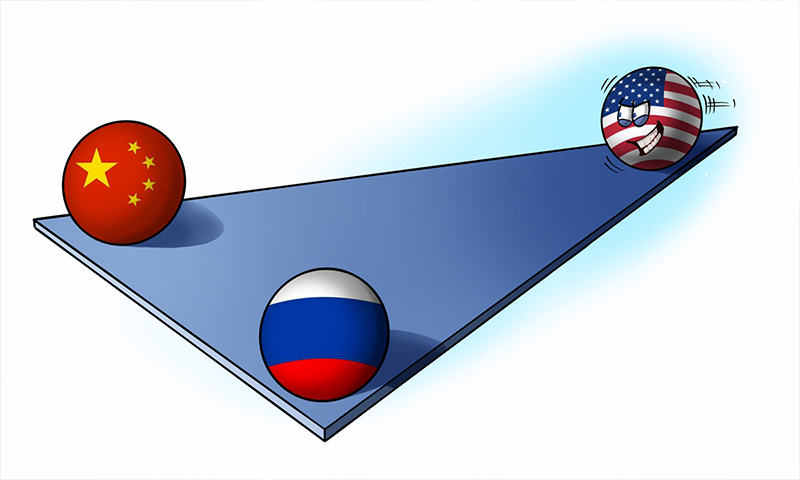
Russia US cooperation depicts how the Chinese exclusion policy is less driven by security risks and more hyped by the fear of the US losing its supremacy in terms of dominance.
All in all, this competition for supremacy in space will reap the benefits by preventing productive use of resources. Creating a cold war scenario, the competition with US-China for dominance will only lead to complications. Which will not only be disadvantageous for the two states but will be impacting the rest of the world. Nonetheless, cooperation among two great rivals can lead humankind far ahead.




